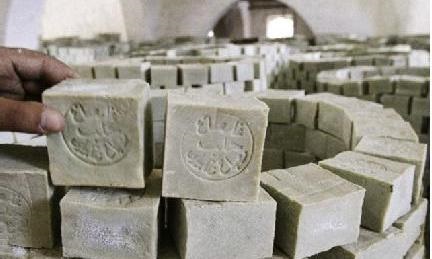As one of the world’s oldest cities, Aleppo is a unique product of its past. Arab, Turkish, Roman, French and Persian influence has shaped the city’s cultural heritage and unique way of life.
Yet, Aleppo’s most significant contribution may be as the birthplace of soap.
Saop is a Latin word that means ”Animal fat”, hence, the origin of the word soap comes. It is believed that the soap industry in its current form was launched from the Mediterranean region, where it spreads to Europe concurrently with the Crusades. The traditional hand-made method of soap production was passed down throughout the generations, and remained unchanged until the early third century AD, when the soap industry transformed from individual domestic work to a large-scale industry.
For 4.000 years, Syrian artisans have made soap bars of olive and laurel oil. A renowned natural product and a cultural pride of Aleppo, known as ghar in Arabic, or Savon d’Alep, is revered by aficionados around the world.
Aleppo soap is the world’s oldest soap and a pure natural product which is made of fine olive oil, laurel oil, water and lye. It has no animal fats or derivatives, no harmful chemicals or artificial colors. This will be resulted in an intensely moisturizing and delicate balsam widely used by those with sensitive skin, including small babies and those who suffer from eczema, psoriasis, and acne.
The ingredients are mixed in the winter during harvest season and set to dry for up to nine months. During the drying process, the soap turns from green to its beige color while preserving its natural antibiotic qualities.
The laurel oil is an effective cleanser that together with olive oil helps to purify and nourish your skin. It is the magic ingredient of Aleppo soap and an essential oil with medicinal properties shown to contain anti-fungal, anti-microbial, anti-inflammatories, and more.
When the Crusaders returned to Europe loaded with treasures from the East, news of the fine Syrian soap they’d found reached the masses. Subsequently, soap production increased in Aleppo, and soon became integral to the city’s economy. Exporting was simple, thanks to Aleppo’s key position along the historic Silk Road trading route.
Soon European soap makers were replicating the product as best they could.
Syrians used to care of themselves and their bodies for thousands of years. Aleppo soap is as important like French perfume, Swiss watches, and Italian pasta.
Lara Khouli

